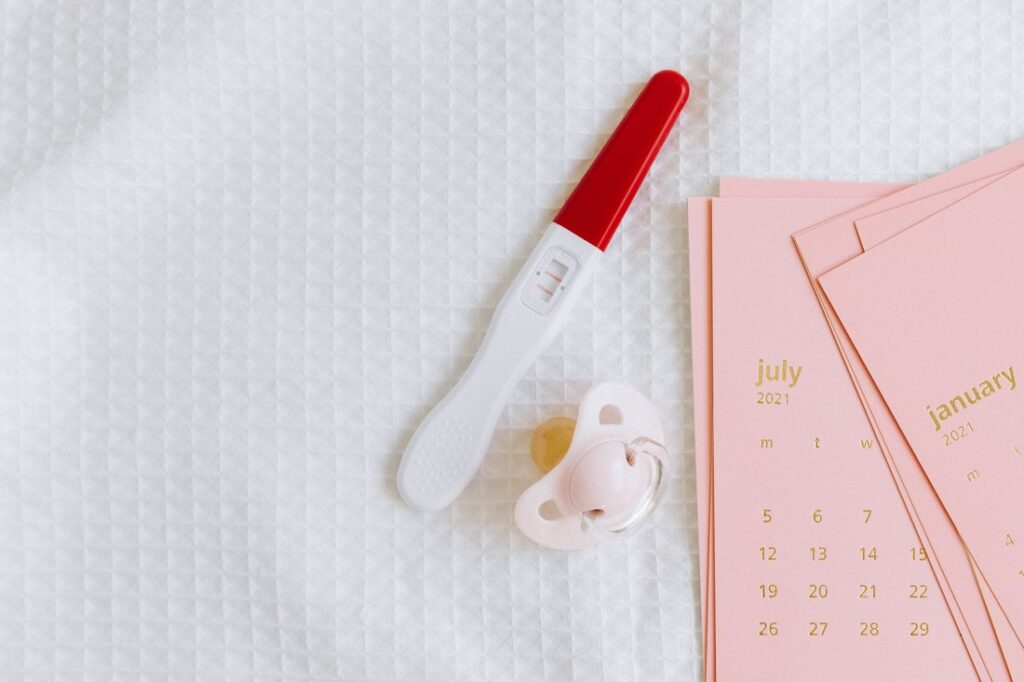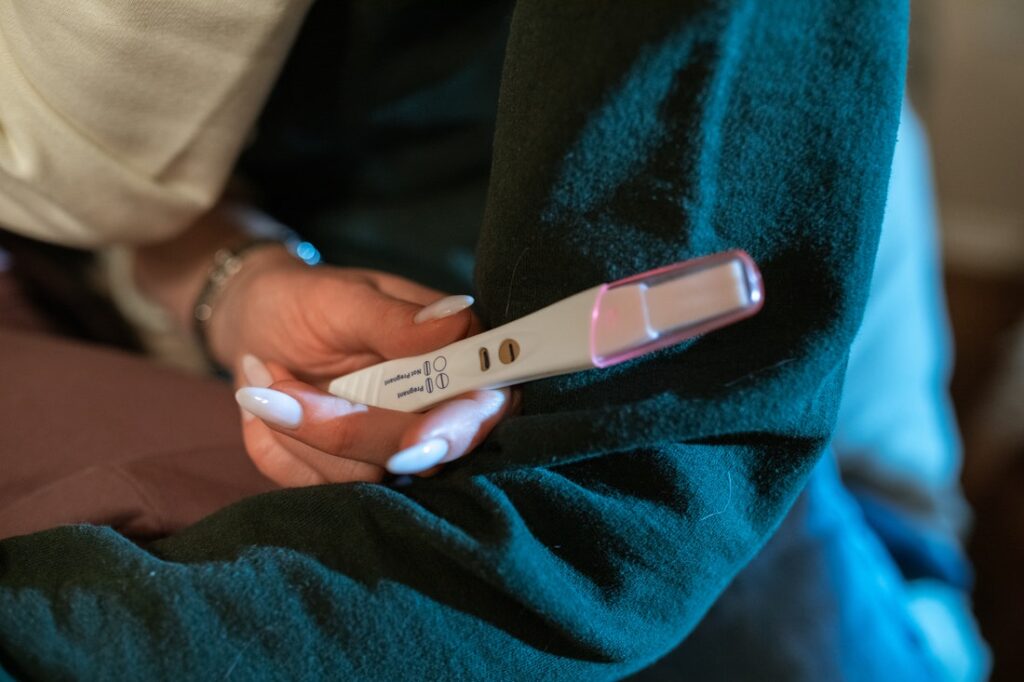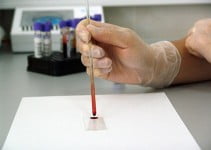
Most women would like to get pregnant during their lifetime, though it takes more time than expected for many. It means that while waiting to get pregnant, they may often use at-home pregnancy tests to detect pregnancy as early as possible.
Yeast infections are relatively common in women of childbearing age. It causes considerable itching, discharge, and other issues. Candida albicans is the primary cause of most yeast infections.
What is interesting is that candida is present in all women, but its growth is kept under control by other beneficial bacteria. These bacteria suppress candida growth by helping maintain an acidic vaginal environment.
Studies show that any hormonal changes in the female body increase yeast infection risk. Thus, for example, studies show that candida is present in abnormal numbers in about one-third of all pregnant women [1].
Since the yeast infection tends to be chronic and recurrent, and it is among the most common vaginal infections, it is logical to ask if it can interfere with the results of the pregnancy test?
In short, the answer is “No”. None of the yeast infections can interfere with the pregnancy tests. To understand why it is not possible, we need to know more about how most commonly used pregnancy tests work.
Understanding pregnancy tests
 All pregnancy tests look for the amount of hormone called human chorionic gonadotropin (hCG) in the female body. As soon as anyone gets pregnant (that is, the egg gets fertilized), the body starts preparing for the pregnancy.
All pregnancy tests look for the amount of hormone called human chorionic gonadotropin (hCG) in the female body. As soon as anyone gets pregnant (that is, the egg gets fertilized), the body starts preparing for the pregnancy.
One of the earliest changes that occur after the fertilization of the egg that makes pregnancy-related changes in the body possible is the production of hCG. It is a hormone that is not present in non-pregnant women.
This particular hormone is essential to prepare the womb for the fertilized egg. Its production starts after about 6-10 days of egg fertilization.
When it comes to the pregnancy test, there are two options: urine test and blood test. Among them, a urine test is preferred and is mostly used due to the ease of carrying out such a test. All it requires is the first few drops of urine early in the morning when lots of hCG has accumulated in the urinary bladder.
However, one must know that blood test is much more sensitive and can detect hCG at much lower amounts. But the problem with the blood test is that it is done in specialized labs, and thus most people would avoid it.
How does a pregnancy test work?
As already mentioned, pregnancy tests look for the hormone called hCG. This hormone is only produced in the female body after egg fertilization. Its production starts within a few days of egg fertilization, but it becomes detectable only after a week or ten days. That is why most at-home pregnancy tests recommend carrying out the test no earlier than 10-days after the conception.
Most modern pregnancy tests use a strip that is coated with monoclonal antibodies. Monoclonal antibodies are proteins that can react with only a specific kind of protein only.
Consider this reaction as a key and lock type of reaction. It means that monoclonal antibodies present on the pregnancy testing strip would only combine with the hCG hormone, resulting in a positive pregnancy test.
Accuracy of pregnancy tests

Theoretically, if you try any key to open millions of locks, it may work for some locks it wasn’t meant to be. Similarly, theoretically, these monoclonal antibodies may react with proteins that significantly resemble hCG. But then, considering that hCG is a very complex protein, such chances are incredibly slim and almost close to zero.
It means that the chances of the wrong reaction and thus false positive results are almost nil with modern pregnancy tests. This is the reason why most manufacturers claim that their tests are nearly 99% accurate.
But, then 99% is quite a good result. So, is it really true? Well, not. In practice, things differ. The true accuracy of at-home pregnancy tests is much lower. But fortunately, they are more likely to show false negative results than false positive results.
Studies show that there are many reasons for false negative results (thus failing to identify the pregnancy). Surveys of pregnancy tests show that many are just not as sensitive as they claim to be.
Therefore, many of these at-home tests require much higher hCG levels than claimed. Thus, they are likely to fail if carried out too early when hCG levels are pretty low, though as the time progresses, their accuracy increases [2].
So, yes, it is true that these tests are 99% accurate. However, accuracy may be much lower on, let’s say 10 th or 12th day of pregnancy. Since, in many cases, women do not know the exact day when they got pregnant, most experts recommend carrying out two tests at the interval of about a week.
Two tests can considerably improve the accuracy of these at-home tests. Additionally, it is good to use pregnancy tests from different manufacturers each time.
Can yeast infection interfere with a pregnancy test?
Since at-home pregnancy tests look for hCG protein or hormone in the urine, there is no way in which yeast can interfere with a pregnancy test. Therefore, there are almost nil chances that yeast infection would cause a false positive result.
However, as already mentioned that in practice, things differ. Yeast infections tend to be chronic and reoccurring, causing significant mental distress. Such emotional distress may cause specific issues, thus lowering a pregnancy test’s accuracy.
For example, some women may use these tests too early and, therefore, false negative results. However, there is no way yeast infection would cause a false positive result.
To conclude, at-home pregnancy tests are highly accurate, and they look for hCG hormone in the urine. In addition, they do not react with any other chemical or protein. Thus, the chances are slim that yeast infection or even any other infection can interfere with the pregnancy test in any way.
References
- García Heredia M, García SD, Copolillo EF, et al. [Prevalence of vaginal candidiasis in pregnant women. Identification of yeasts and susceptibility to antifungal agents]. Rev Argent Microbiol. 2006;38(1):9-12.
- Butler SA, Khanlian SA, Cole LA. Detection of Early Pregnancy Forms of Human Chorionic Gonadotropin by Home Pregnancy Test Devices. Clinical Chemistry. 2001;47(12):2131-2136. doi:10.1093/clinchem/47.12.2131




 Dr. Preet Pal SB is a physician (M.D. Medicine) with a specialization in diabetes (Fellowship in diabetes, Royal Liverpool Academy). He has a particular interest in metabolic disorders, considering that they are rising in every corner of the world, more so in India.
Dr. Preet Pal SB is a physician (M.D. Medicine) with a specialization in diabetes (Fellowship in diabetes, Royal Liverpool Academy). He has a particular interest in metabolic disorders, considering that they are rising in every corner of the world, more so in India.